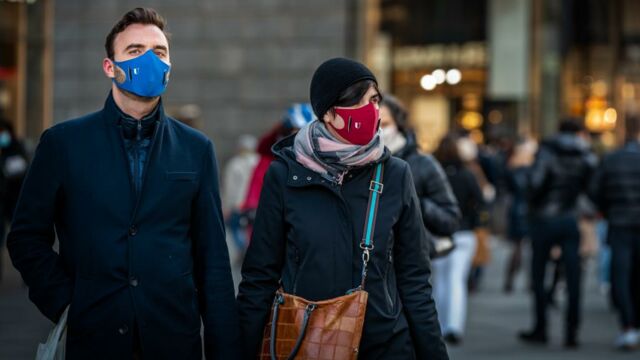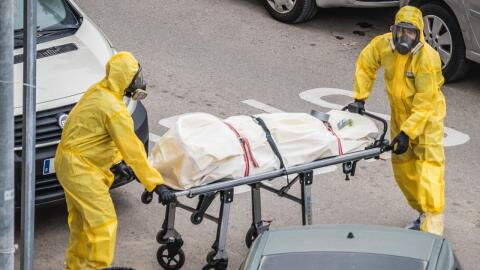After a long and arduous battle against the Omicron variant which made waves around the world, the UK is finally on the road towards recovery, according to experts.
Discover our latest podcast
Death rates on a steady decline
Projections from the SPI-M modelling group have predicted that the number of deaths will now be declining after having reached its peak on 16 January. The study also shows that the number of deaths per day will not be surpassing more than 250.
When compared to the peak recorded last winter—1,135 deaths reported daily—numbers are currently five times lower and expected to drop even more. SAGE has confirmed that this is largely due to a combination of mass vaccination and the less severe nature of the Omicron strain. The group said:
The increase in hospitalisations, which is anticipated following the increase in cases in older age groups, has not been seen so far.
And added:
This may be due to higher vaccine levels of protection against hospitalisation, slower waning of vaccine protection, or the impact of precautionary behaviours amongst the most vulnerable and those around them
Read more:
⋙ COVID-19: Why some people are immune to the virus
⋙ COVID: Having this gene lessens severity of infection by 20%
⋙ 3 countries you can travel to post your COVID recovery
Back to Plan A
The news comes as PM Boris Johnson scrapped Plan B restrictions to revert back to Plan A—effectively eliminating mandatory work from home and the use of face masks. Health Secretary, Sajid Javid, explained that the Omicron variant was indeed much less impactful than Delta ever was:
With Omicron, we estimate around 40 per cent of the people with Covid in hospital are there not because they've got Covid – they happen to have Covid. So it's what you might call an incidental infection.
Adding that:
So they're not there being treated for Covid. And that's almost double the percentage that we saw with Delta. That's important because the deaths that are being reported of people that were Covid-positive within 28 days of passing away, many of those people would not have necessarily died of Covid.”















